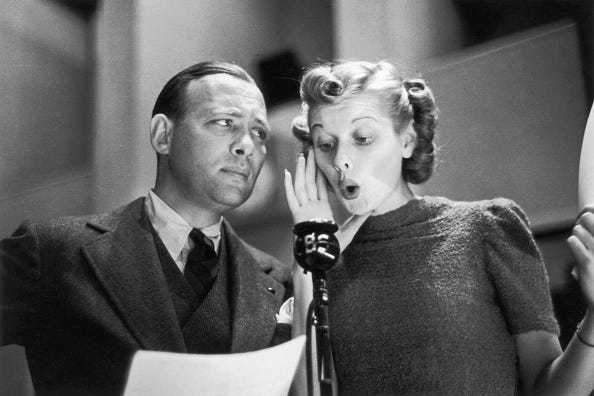I went to a wedding in California last week, a beautiful wedding out under the eucalyptus trees, a rare pleasure for me, being at the age when friends are not vowing “till death us do part” but watching death part them, and it was fun. It being California, the men were very mellow, the women were all glamorous in bright strapless gowns and hugged each other and cried, “Oh my god, you look fabulous,” and effusiveness was the rule. The men were all socially engaged, tolerant of differences, committed to social justice. The parents stood up and gave speeches praising the bride and groom so lavishly, it made me wonder if the couple had been diagnosed with a fatal disease.
I’m from Minnesota where weddings are solemn and parents do not speak admiringly of their children. Not lavishly anyway. They worry. They wonder if the marriage will last. They wonder if the guests are having a good time. In Minnesota, it’s hard to tell.
Pride goeth before a fall and so my parents never praised me for fear it might lead to multiple felony indictments. They never bragged on us; it was good enough to be not bad. Grandpa Denham left Glasgow back when Glaswegians leaned out the window and shouted, “Comin’ oot!” and threw the contents of the chamber pot into the street and he arrived in Minneapolis and bought a house on Longfellow Avenue that had flush toilets. You didn’t walk down the street and get doused with manure. Not bad.
The California couple vowed faithfulness, of course, but they also pledged to love and support each other in times of sorrow and times of triumph, and the word “triumph” set off a buzzer in my head. This is marriage, it isn’t football. What triumph are we talking about? Perfect poached eggs? A prize-winning yard? Championship sex?
Maybe I’m suspicious of the word “triumph” because it contains the name of a particular presidential candidate famous for obsessive boastfulness. But I sat at the wedding dinner (which was not bad) and I thought back over my life, looking for triumph, and not finding it.
I was a mediocre student, which was advantageous for me in that it spared me illusions about triumph. I went to the U and went to work in radio the fall of my freshman year because radio announcing allowed me to impersonate intelligence without having to answer tough questions. I majored in English because I had a gift for writing passable term papers about books I only knew from reading CliffsNotes. My ambition was to be a journalist and I dropped out of college for a year to write for the St. Paul Pioneer Press, interviewing minor celebs and writing obits. I wound up hosting an early-morning radio show, which is what got me into comedy. It’s what people need at 6 a.m. in Minnesota. I spent forty-some years talking about the town of Lake Wobegon, Minnesota, and gradually became aware that some people enjoyed this, which gave me a sense of usefulness.
I had two unhappy marriages and then married this lovely woman sitting next to me under the trees in California and I am happy with her, often delighted, and I’m still thrilled when she walks up behind me at my desk and puts her hand on my shoulder, but I wouldn’t claim triumph. I love my work too but like every other Minnesotan I know, I shrink at extravagant praise and try to fend it off.
I’m grateful to Grandpa for coming to America. He fathered 13 children by his wife, Marian, including my mother, and in photographs Marian appears very haggard as if she were a prison inmate. My mother had six kids, which was much easier, and she loved us and even said so occasionally. She was fundamentalist but she loved comedy, especially Lucille Ball and Red Skelton and Burns & Allen, and I think of her when I have a good night in front of a crowd that likes the jokes. I once did my stand-up at the Edinburgh Fringe Festival and I flew her and Dad over to see it and I did the story about the pontoon boat loaded with Lutherans and the man on the parasail scattering his grandma’s ashes and his near collision with the hot-air balloon, a complex puzzle involving public nudity and a canceled wedding and a sniffy dog, and I made the pieces fit and the audience fell apart and my mother said, “That was good.” Thank you, dear. Rest in peace, rise in triumph.









Last week I had a terrible fall that left me with two broken fingers and a nasty gash in the palm of my hand. So making it up and down the fifteen brick steps that lead to my front door is a triumph each day when I walk the dog. It’s a triumph because I’m especially risk adverse since I fell. And it wasn’t the first time I needed stitches.
Perhaps we define triumph differently, beyond what the dictionary provides.
My life has been a battlefield. I suffer from depression, social anxiety, PTSD and OCD (H I J K L M N O P…)
But every Saturday night for years, I was invited into the Chatterbox Cafe, Guy Noir’s world and church breakfasts in the basement of the Lutheran Church in Lake Wobegon from my kitchen table with my cup of tea, and that just made me happy, a state of mind I usually have to fight for.
I’m sorry that you feel you’ve achieved no triumphs considering the value you place on the importance of cheerfulness.
You consistently provided it, which cut through my sometimes exhausting struggles. I am only one person. I am certain I am not alone.
So please reconsider. Triumph is indeed underrated.
A day without words from Garrison is like a day without sunshine!